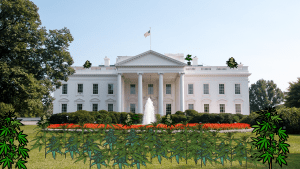What You Need to Know About the World’s Next Cannabis Superpower
Executive Summary: With Anutin Charnvirakul – Thailand’s “Cannabis King” – now serving as Prime Minister, the Southeast Asian nation is positioned to become one of the world’s largest cannabis markets. Our complete analysis reveals why Thailand could challenge established markets like Canada and Germany within the next decade.
The Numbers That Tell the Story
Thailand’s cannabis market trajectory is nothing short of extraordinary. The market was valued at USD 1.31 billion in 2024 and is expected to grow at a CAGR of 33.0% from 2025 to 2030, while other projections are even more bullish, with Thailand projected to reach USD 9,624.1 million by 2030.
To put this in global perspective: The United States leads adult-use cannabis sales at over 20 billion U.S. dollars in 2023, with Canada at roughly 3.9 billion dollars. The global cannabis market is projected to grow from $57.18 billion in 2023 to $444.34 billion by 2030.
Thailand’s projected share: By 2030, Thailand could capture approximately 2.2% of the global cannabis market – making it the largest single market outside North America and Europe.
Part I: The Political Foundation – Why Anutin Changes Everything
The Cannabis Pioneer Now Holds the Keys
Anutin Charnvirakul’s ascension to Prime Minister represents unprecedented continuity for cannabis policy. Unlike other countries where cannabis legalization faces political uncertainty, Thailand now has its chief architect of cannabis reform in the highest office.
Key Background:
- As Health Minister, Anutin spearheaded Asia’s first cannabis decriminalization in 2022
- His Bhumjaithai party built its political brand around cannabis reform
- Wore a shirt with marijuana leaves during the 2023 election campaign
- Originally motivated by reducing prison overcrowding and rural poverty
The Stability Question
Critics point to Anutin’s minority government and planned elections within four months as instability factors. However, our analysis suggests the opposite:
Why Cannabis Policy Will Survive:
- Economic Reality: Cannabis industry revenue reached approximately 28 billion Thai baht within the first year of decriminalization and is projected to almost double
- Constituency Lock-in: Thousands of cannabis retailers and farmers now depend on current laws
- Tourism Revenue: Cannabis tourism has become a significant economic driver
- Regional Leadership: Thailand’s first-mover advantage in Asia is strategically valuable
Part II: Market Analysis – The Path to Global Dominance
Current Market Reality
The Thai cannabis market is currently a full-blown recreational model, and it has exploded quicker than any market in legal cannabis history. This rapid expansion provides several competitive advantages:
Infrastructure Development:
- Thousands of dispensaries already operational
- Supply chains established across the country
- Processing facilities scaling rapidly
Consumer Adoption:
- Local consumption patterns established quickly
- Medical cannabis acceptance high due to traditional medicine integration
- Tourism creating international demand awareness
The Medical Cannabis Foundation
The Thailand medical cannabis market reached USD 274.0 Million in 2024 and is expected to reach USD 7,544.0 Million by 2033, exhibiting a CAGR of 44.5%. This medical foundation provides several strategic advantages:
- Regulatory Stability: Medical use enjoys broader political support
- Quality Standards: Medical requirements drive quality improvements
- Research Infrastructure: Universities and hospitals developing expertise
- Export Potential: Medical products face fewer international restrictions
Comparative Market Analysis
Thailand vs. Established Markets:
| Market | Current Size | 2030 Projection | Population | Market Per Capita |
|---|---|---|---|---|
| Thailand | $1.31B | $9.6B | 70M | $137 |
| Canada | $3.9B | ~$8B | 39M | $205 |
| Germany | ~$500M | $3-5B | 84M | $36-60 |
Thailand’s per-capita potential suggests significant room for growth
Part III: Strategic Advantages – Why Thailand Could Win
1. Geographic and Economic Advantages
Climate: Year-round growing season with optimal conditions Labor Costs: Significantly lower than Western markets Strategic Location: Gateway to 650 million ASEAN consumers Tourism Integration: Existing wellness tourism infrastructure
2. Regulatory Environment
Unlike jurisdictions with complex, restrictive frameworks, Thailand opted for decriminalization with minimal barriers:
- Home cultivation: Allowed with simple registration
- Business licensing: Relatively straightforward compared to other markets
- Product restrictions: Fewer than most legal markets
- Taxation: Currently lighter than most jurisdictions
3. Cultural Integration
Traditional Medicine Connection: Cannabis use aligns with traditional Thai healing practices Buddhist Philosophy: Less moral opposition compared to Western contexts Agricultural Heritage: Farmers quickly adapted existing skills Entrepreneurial Culture: Rapid business development
Part IV: The Investment Landscape
Current Investment Themes
1. Medical Cannabis Manufacturing
- Medical Cannabis market projected to reach US$121.10m in 2024
- Export-focused production facilities
- Pharmaceutical-grade extraction
2. Tourism and Retail
- Cannabis cafes and wellness resorts
- Integrated tourism experiences
- Retail chain development
3. Agricultural Technology
- Cultivation optimization
- Processing equipment
- Quality control systems
Investment Considerations
Opportunities:
- First-mover advantage in Asia
- Government support under Anutin
- Rapid market development
- Export potential
Risks:
- Regulatory changes with new government
- Market saturation concerns
- International banking restrictions
- Currency and political volatility
Part V: The Global Context – Thailand’s Trajectory
Comparison to Other Emerging Markets
While North America and Europe are the world’s largest and most mature cannabis markets, Thailand represents the most significant emerging market opportunity:
Advantages over European Markets:
- Faster regulatory implementation
- Lower compliance costs
- Better growing conditions
- Lower labor costs
Advantages over Other Asian Markets:
- Only fully legal jurisdiction in region
- Established infrastructure
- Government support
- Tourist accessibility
The 2030 Projection: Realistic or Optimistic?
Our analysis of the USD 9,624.1 million by 2030 projection considers several factors:
Supporting Factors:
- Population size (70 million)
- Tourism potential (35+ million annual visitors pre-COVID)
- Regional market access (ASEAN)
- Agricultural advantages
Challenging Factors:
- Income levels lower than Western markets
- Potential regulatory reversals
- Competition from other jurisdictions
- International banking limitations
Verdict: The projection is ambitious but achievable if political stability continues and export markets develop.
Part VI: Sector-by-Sector Breakdown
Medical Cannabis: The Foundation
- Current: $274M (2024)
- 2030 Projection: $7.5B
- Key Drivers: Aging population, chronic pain treatment, cancer care
Recreational/Adult-Use: The Growth Engine
- Current Status: De facto legal through decriminalization
- Growth Potential: Highest globally by percentage
- Tourism Component: Significant international demand
Industrial Hemp: The Dark Horse
- Applications: Textiles, construction materials, biofuels
- Advantages: Existing agricultural infrastructure
- Export Potential: Less regulated than psychoactive cannabis
Cannabis Technology: The Multiplier
- Opportunity: Software, hardware, and service providers
- Local Demand: Rapidly scaling operations need technology
- Export Potential: Solutions developed for Thai market applicable globally
Part VII: Risks and Mitigation Strategies
Political Risk Analysis
Scenario 1: Anutin Government Continues
- Probability: 40%
- Impact: Continued cannabis-friendly policies
- Investment Climate: Excellent
Scenario 2: Coalition Government with Cannabis Support
- Probability: 35%
- Impact: Slower growth, some regulatory tightening
- Investment Climate: Good
Scenario 3: Anti-Cannabis Government
- Probability: 20%
- Impact: Significant regulatory restrictions
- Investment Climate: Poor
Scenario 4: Return to Prohibition
- Probability: 5%
- Impact: Market collapse
- Investment Climate: Catastrophic
Mitigation Strategies for Investors
- Diversification: Don’t put all investments in Thailand
- Local Partnerships: Essential for navigating regulatory changes
- Focus on Medical: More politically stable than recreational
- Export Readiness: Develop capabilities for international markets
- Flexible Operations: Ability to pivot quickly with regulatory changes
Part VIII: Timeline and Milestones
2025: The Critical Year
- Q1: Anutin government establishes cannabis policy direction
- Q2-Q3: Potential elections and policy continuity test
- Q4: Market consolidation begins
2026-2027: Scale and Export
- Major international partnerships
- Export market development
- Technology integration
2028-2030: Market Maturity
- Potential $9.6B market realization
- Regional hub establishment
- Global top-5 market position
Conclusion: Thailand as the Next Cannabis Superpower
The confluence of factors – Anutin’s leadership, rapid market development, geographic advantages, and regulatory environment – positions Thailand uniquely in the global cannabis landscape.
The Bull Case: Thailand becomes the world’s third-largest cannabis market by 2030, behind only the US and a fully-legal Europe, with annual revenues approaching $10 billion.
The Bear Case: Political instability and regulatory rollbacks limit growth to $3-4 billion, still making it a significant regional player.
The Most Likely Outcome: Thailand captures 2-3% of the global cannabis market by 2030, generating $5-7 billion annually and establishing itself as Asia’s undisputed cannabis hub.
Investment Thesis: For investors seeking exposure to the next phase of global cannabis growth, Thailand offers the most compelling risk-adjusted opportunity outside established Western markets. The key is timing entry during the current political transition and positioning for the long-term structural growth story.
Final Note: With Anutin at the helm and a proven track record of cannabis reform, Thailand is not just another emerging market – it’s potentially the blueprint for how rapid, successful cannabis legalization can drive economic growth and regional leadership.
This analysis is based on current market data and projections. Cannabis investments carry significant regulatory and market risks. Consult with qualified advisors before making investment decisions.








